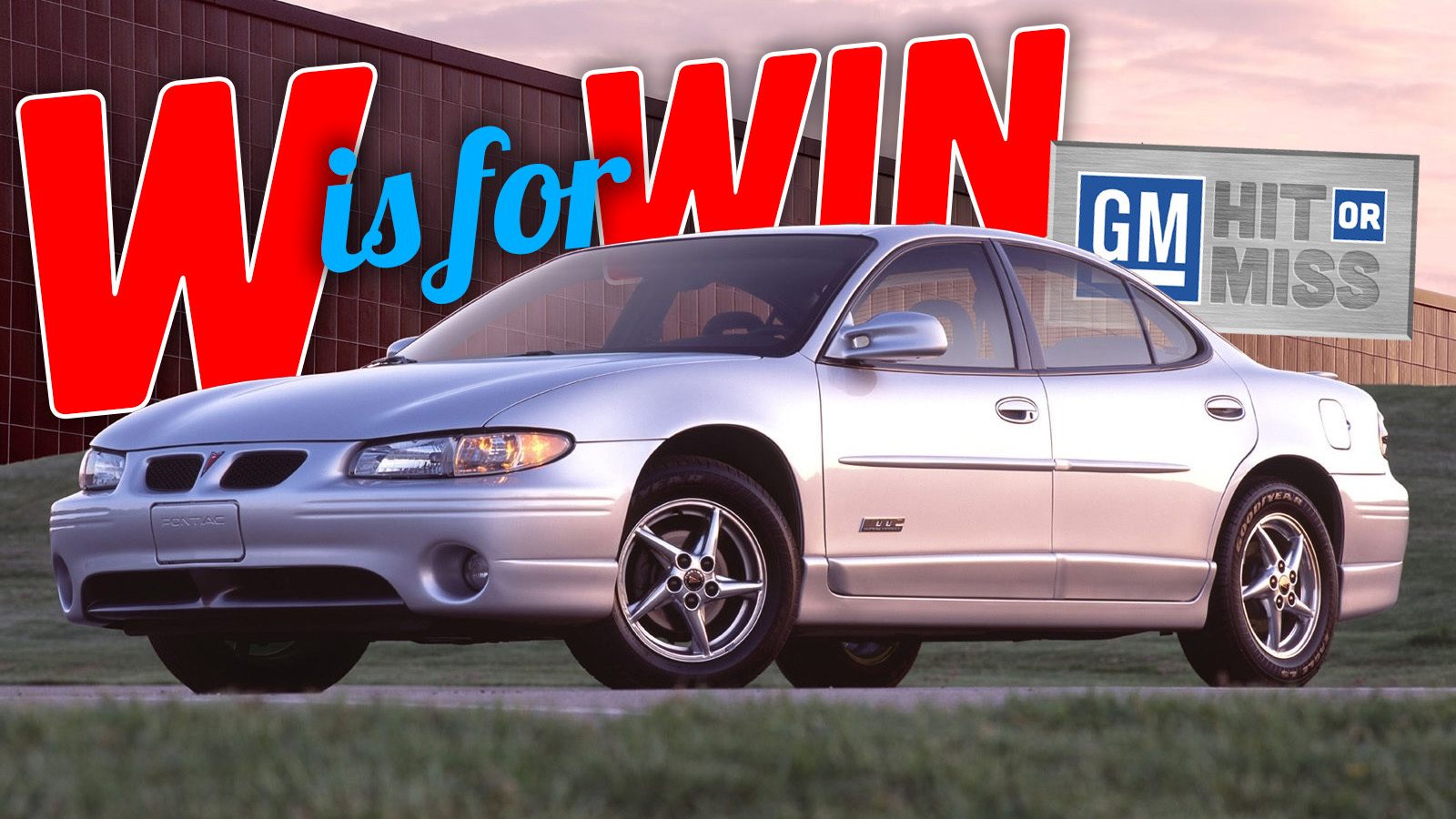Would you kill the product that made you famous? When it’s not out of regulatory concern, a decision like that seems almost unfathomable, right? Well, one person’s unfathomable is another person’s possible business move. This week, Volvo CEO Jim Rowan stated that the carmaker might not have normal wagons in the future, and that sounds like it would be quite the mistake to make.
In a recent interview with AutoExpress, Volvo’s CEO discussed the future of the brand, and brought up a few interesting ideas. More Cross Country variants make sense, given the outdoorsy lifestyle boom, and the prospect of more Volvo performance cars in the future sounds quite appealing. However, the interview wasn’t all promising news.
When asked whether he could see a future without a traditional Volvo estate car, Rowan replied simply by saying: “Yes. Because I think [the market has] changed, right?
I think that purely talking sales volume is a rather narrow view of things, because the station wagon is Volvo’s cultural relevance. Ask anyone what they think of when they picture a Volvo, and chances are it’s going to be a wagon. It might be a 240, it might be a V70, it might be a V60 Polestar, but there’s a remarkably strong chance it isn’t a sedan or a crossover. Not only were these all vehicles that left a footprint, they all said something about Volvo’s historic clientele. A little bit left-field, a little bit more pragmatic than the typical European luxury car buyer, possibly people in academia or psychology or teaching.

More importantly, in the decades since the iconic 240 ended production, the image of owning a Volvo wagon has flipped dramatically. While these cars used to be a bit too unstylish and a bit too New England, they’re now officially cool, not ironically but authentically. Few cars in the world achieve that sort of status, and in an age where authenticity is the ultimate social currency, it would be a mistake not to capitalize on what Volvo already has.

It sounds like right now, Volvo could use someone like Porsche’s first American CEO, Peter Schutz. Widely credited with saving the Porsche 911 from being phased out in the early 1980s, he stuck up for product that mattered not because of modernity or technical state-of-the-art, but because of archetypes and enthusiast appeal. I’ll let Schutz’s own words in Road & Track detail how that decision went.
I remember the day quite well: I went down to the office of our lead engineer, Professor Helmuth Bott, to discuss plans for our upcoming model. I noticed a chart hanging on his wall that depicted the ongoing development trends of our top three lines: 911, 928, and 944. With the latter options, the graph showed a steady rise in production for years to come. But for the 911, the line stopped in 1981. I grabbed a marker off Professor Bott’s desk and extended the 911 line across the page, onto the wall, and out the door. When I came back, Bott stood there, grinning.
“Do we understand each other?” I asked. And with a nod, we did.
Of course, a potential future without Volvo wagons isn’t without precedent. In 2023, Volvo discontinued the V60 and V90 wagons in the United Kingdom, citing falling demand. It was a business decision that ended up making people furious, and I’m not just talking about car nerds. Outlets like Euro News and the Guardian eulogized the models, and the car-buying public wanted to vote with their dollars. Less than twelve months later, due to sheer uproar and demand, Volvo UK reversed course. In a statement to Autocar, the firm wrote: “We removed the V60 and V90 from sale in the UK last August amid falling appetite for estate cars. While this remains a long-term trend, we have seen a resurgence for our estate products in recent months and have decided to reintroduce the V60 and V90 to our UK portfolio in response to this. We will begin taking orders next month.”

Car companies that aren’t purely value-driven need halo cars for the sake of image. The Ford Mustang. The Volkswagen ID.Buzz. The Chevrolet Corvette. The Porsche 911. While Volvo’s wagons don’t make up enormous sales volume, they are the brand’s halo cars, the ones that have greater intangible impact than anything else in the range. So, Volvo, do we understand each other?
Top image graphic: Volvo
Support our mission of championing car culture by becoming an Official Autopian Member.

-
Surprise! The 435-Mile Volvo ES90 Is Actually A Big Electric Hatchback
-
The Volvo XC60 Gets Another Light Facelift Because It’s Still A Damn Good Car
-
The Volvo EX30 Cross Country Seems Mostly For Posing And That’s Totally Okay
-
Volvo Once Sold A Car With A See-Through Dashboard And It’s Cool As Hell
-
Looks Like The Volvo EX30 Is Finally Coming To America This Year After Months Of Delays
Please send tips about cool car things to tips@theautopian.com. You could even win a prize!








I concur 100% and couldn’t have said it better. Loved the callback at the end.
Heartbreaking. I grew up in Volvo and Mercedes wagons and I feel like this is the end of an era. At least Audi and BMW are still trying.
I feel like the industry has become too dominated by execs who need to justify their time in a role by way of cost savings, rather than product (VC’s buying companies seem to do the same thing), without looking at what that product means for the company in intangible ways. The halo effect. They can’t prove that leaning into their halo products earns money, so they don’t want to take the risk. There are a few exceptions out there (Farley, to name one), thankfully.
I’ve said the same thing about enthusiast models offering manual transmissions. The manuals draw in the uber-enthusiasts, which lends credibility to the products. I believe that Alfa would be in a better spot today if they’d brought the Giulia Quadrifoglio with the manual here. I’ve driven one and it was lust-worthy. BMW continuing to offer manuals in the M2/M3/M4/Z4 is evidence that they SEEM to understand the benefit.
Something that bothers me about a lot of modern companies is that they don’t really seem to have an answer for “why would a customer buy your product instead of your competitors?” The idea of a brand’s “value statement” seems to be dead – nobody’s trying to differentiate themselves in the market, they’re all going after the same median customer.
Maybe there’s not a market for every car maker to sell a wagon, but there’s surely a market for one, and the fact that none of your peers are doing it is an opportunity, not a reason to follow suite.
We own 3 Wagons an 87 240 5Sp, 08 XC70, & a 22 V60CC. All are great cars in their own way. My favorite is the XC70. The inline 6 is an amazing enginesilk wants to be that smooth. Cheers Autopians!
“I have no interest in buzzy 4Cyl engines!”
Tell us you’re not really a Volvo person without telling us you’re not really a Volvo person.
Because Amazons, 140/240 Series, P1800s, and the 700/900 Series were primarily 4 cylinder cars – with the odd inline 6 (Based on the B20 engines) and PRV6 thrown in here and there.
They were 4Cyl, but not buzzy, they were not the high revving 4Cyl they use today.
I was in my elderly parent’s new XC40 recently – and I couldn’t tell you if the motor was “Buzzy” or not.
Because it was quiet inside.
My experience with the 2.0L Volvo engine is with the many times over the years that I’ve had a XC60 as a loaner from the dealership when I was having my car (s) serviced.
I love wagons, my TSX is the do it all in the family. But I’d argue that wagons aren’t what define Volvo, just one characteristic of the brand. Their main draw (niche?) was safety and lately they seem to be straying away from that in favor of more stylish and attractive vehicles and EVs. They’re still excellent with safety but not really digging into what makes them unique. The best brands have that perception even if it might not be true in all cases. Toyota/Honda have reliability, dependability, durability. Subaru, symmetric AWD, Mazda ZoomZoom(RIP), BMW ultimate driving machine ,etc. The worst brands are forgettable and generic. Safety above all was the one thing Volvo had the market cornered but somewhere along the way that got diluted with Polestars and EVs.
I’d love a TSX wagon for a future daily driver. Too bad there’s so few for sale where im at, same thing with the Regal TourX.
This possibility makes me sad. I’ve owned two Volvo wagons and they were both amazing cars.
My 2018 V90 CC is at 123k and still going strong. It doesn’t have the Tonka toy feel of the mustard yellow 245 we had when I was a kid (we will ignore the 343 that followed it) but it’s still a nice place to be.
We bought an Impreza hatchback before our first kid was born. Still using it with three kids and love it. Enough room for all three and a roof rack makes longer trips tolerable. Also very easy to parallel park in the city.
I spent years convincing my wife that SUVs are inferior to wagons or vans (another conversation entirely) and she’s finally on board. What does Volvo do – they kill the wagon (V90) I’ve convinced her is our next car. Our only option now is a used version, which is fine, but they are not easy to find. I do agree the price premium was always a problem. But what an attractive car.
Not hard to see why. I love wagons, even had a Camry wagon. But gone are the days where families existed on one salary and you had a large vehicle and a work vehicle (just go price out a Volvo). If you’re only able to afford 1 it’s gonna be an SUV of some kind. The only issue I had with the Camry wagon was I wish it had more ground clearance for winter / hauling stuff. SUV solves that.
If I could afford 2 vehicles sure, a wagon would be nice but again, most can’t.
For anyone that isn’t into large trucks and tall blob cars, this is a pretty dark timeline.
I hope that if the wagon is totally killed off, it might get reincarnated as “the next big thing in automobile form factor” in the near future. Almost as if we kill it off, maybe people will finally see the value in it. A posthumous resurgence of sorts.
As someone who won’t drive an SUV on principle (yet?) I’ve looked at the V90 (and the V60) and they just aren’t very good at carrying stuff – they have smaller boots and slopier roofs than the Audi/Merc/BMW equivalents (although the brand-new Audi A?s Avants appear to be super impractical). If you’re a Volvo fan that forces you into an XC. I’m lucky enough to be in a country where you can buy a Golf R estate, which is all the car one can ever need.
One thing I desire is for Canada to drop NA safety standards and adopt the EU ones, so I can have wonderful cars like the Golf R estate here.